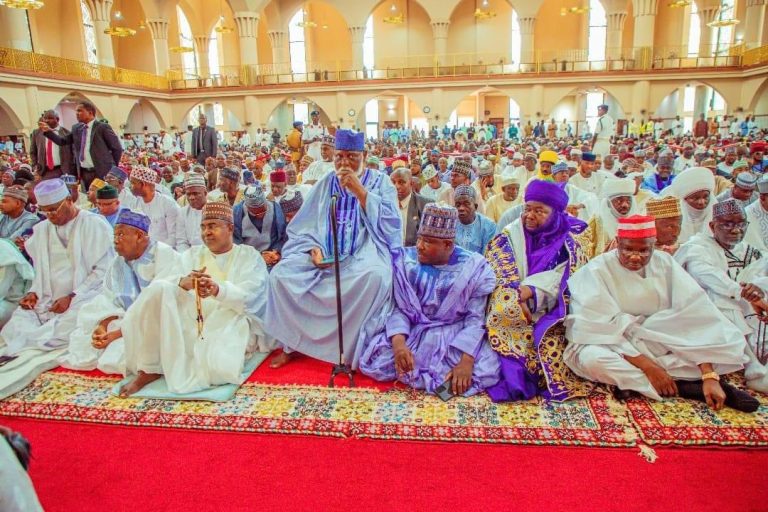News
Ganduje, Kwankwaso Avoid Each Other At Atiku Daughter’s Wedding

At the wedding of Laila Atiku Abubakar, daughter of former Vice President Atiku Abubakar, on Friday. The longstanding rivalry between the National Chairman of the All Progressives Congress (APC), Dr. Abdullahi Ganduje, and the National Leader of the New Nigeria People’s Party (NNPP), Senator Musa Kwankwaso, took center stage.
The high-profile wedding ceremony between Laila and Saleh Maitala, son of the immediate past Minister of Education, Adamu Adamu, was held at the National Mosque in Abuja.
The event attracted several political heavyweights from across the country, including former Head of State General Abdulsalami Abubakar, former governors Sule Lamido (Jigawa), Murtala Nyako (Adamawa), Ali Modu Sheriff (Borno), Ibrahim Shekarau (Kano), and Adamu Muazu (Bauchi), among others.
Despite the presence of so many political bigwigs, all eyes were on Ganduje and Kwankwaso, whose feud has been well-publicized.
The tension was palpable as both men sat close to each other but avoided eye contact throughout the event.
Recommended News:
- Nigerian Minister Of Defense Condemn Gruesome Killing Of District Head, Vow To Bring Perpetrators To Justice
- Arole Azeez Bello Receives Thunderous Applause As He Declares Intention To Run For Sagamu LGA’s Chairman
- From N150 Billion Presidential Jet To N5 Billion Yacht: Tinubu Govt’s Extravagant Purchases Under Scrutiny
According to Punch, the two leaders immediately looked away when they spotted each other and later knelt for prayers at a distance, with other dignitaries like Buba Marwa, Abdulsalami Abubakar, and Ali Modu Sheriff separating them.
The wedding ceremony comes just two days after former Vice President Atiku Abubakar received a delegation led by ex-Kaduna State Governor, Nasiru El-Rufai, who formally requested Laila’s hand in marriage.
This latest public display of animosity between Ganduje and Kwankwaso underscores the deep divide that remains between the two Kano-based politicians, despite their shared history in the state’s political landscape.
























